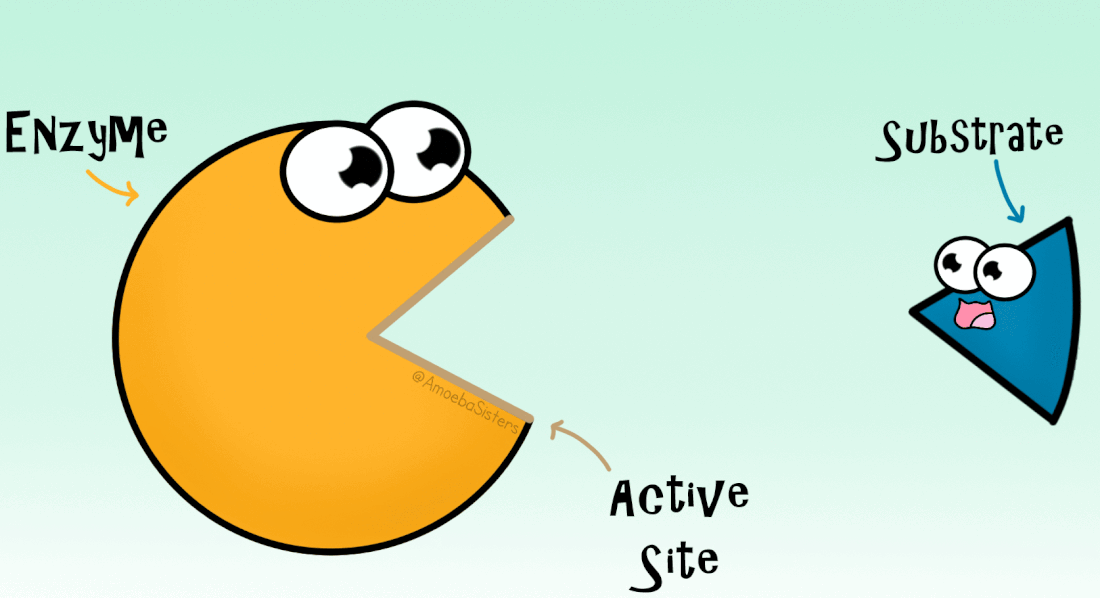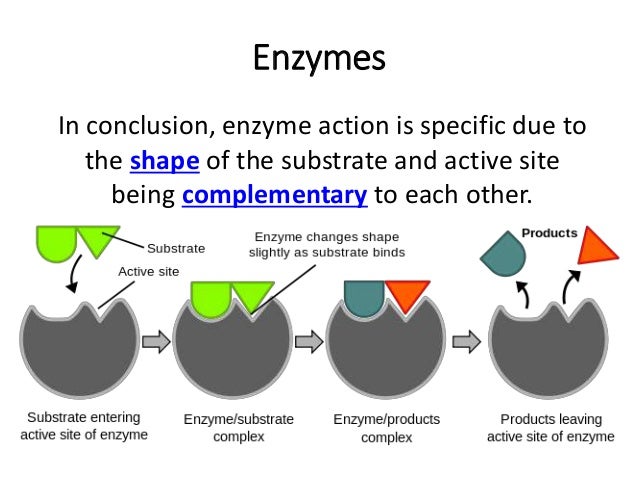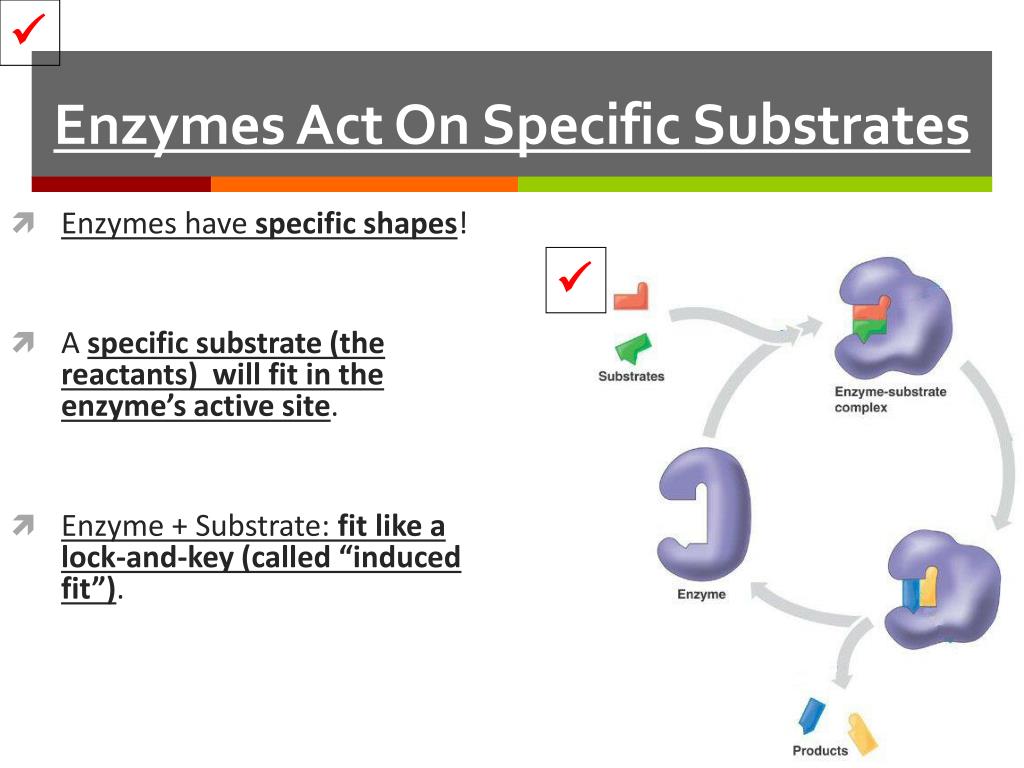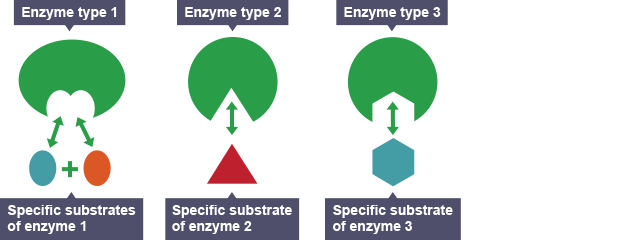Why Is An Enzyme Substrate Specific
Why Is An Enzyme Substrate Specific. Additionally, what determines the specific substrate with. According to key enzyme hypothesis , enzyme acts as a key to react with substrate prior to release of product.

 Enzymes & Receptors Seeking out the perfect one from blogs.ntu.edu.sg
Enzymes & Receptors Seeking out the perfect one from blogs.ntu.edu.sgEnzymes are specific to substrates as they have an active site which only allow certain substrates to bind to the active site. Thus, any substrate can't activate the active site of enzyme but a specific one. In this analogy, the lock is the enzyme and the key is the substrate.
This makes enzymes highly specific. Why is it called the lock and key model?

Because of the certain shape they have. Enzymes are biological catalysts which speed up reactions.

The lock and key hypothesis models this. Because they have specifically formed binding pockets.
Enzymes are biological catalysts which speed up reactions. Thus, any substrate can't activate the active site of enzyme but a specific one.

The shape of the active site of an enzyme is complementary to the shape of its specific substrate. That's the reason that a single enzyme can.

Hence the enzymes are specific in binding the site and their action. The enzymes are specific in their action because they have substrate binding site which has three dimensional configuration which binds to the complementary three dimensional substrate molecule.
In the lock and key hypothesis , the shape of the active site matches the shape of its substrate molecules. Without its substrate an enzyme is a slightly different shape.

A substrate is something that enzyme needs in order to perform its catalytic activity. It's just like key that fits into the lock of specific shape and number similarly the eñzyme is.
Hence the enzymes are specific in binding the site and their action. That's the reason that a single enzyme can.

The lock and key hypothesis models this. Extreme ph values can cause enzymes to denature.

Thus, any substrate can't activate the active site of enzyme but a specific one. Since, the substrate binds to a specific enzyme, this hypothesis is meant for the substrate specific enzymes.
The specificity of the serine proteases is usually not very high since they have similar active sites and act through the same proteolytic mechanism. The enzyme substrate complex is a temporary molecule formed when an enzyme comes into perfect contact with its substrate.
Hence the enzymes are specific in binding the site and their action. That's the reason that a single enzyme can.

According to key enzyme hypothesis , enzyme acts as a key to react with substrate prior to release of product. Any change in this ph significantly affects the enzyme activity and/or the rate of reaction.

This means they are the correct shapes to fit together. An enzyme's active site and its substrate are complementary in shape.

The specific action of an enzyme with a single substrate can be explained using a lock and key analogy first postulated in 1894 by emil fischer. Because they have specifically formed binding pockets.

According to key enzyme hypothesis , enzyme acts as a key to react with substrate prior to release of product. This is due to the shape of the active site and any other substrates cannot bind to the active site.

However, at high temperatures the. Enzymes are highly selective catalysts, meaning that each enzyme only speeds up a specific reaction.the molecules that an enzyme works with are called substrates.

The enzyme substrate complex is a temporary molecule formed when an enzyme comes into perfect contact with its substrate. Enzymes are highly selective catalysts, meaning that each enzyme only speeds up a specific reaction.the molecules that an enzyme works with are called substrates.
The specific action of an enzyme with a single substrate can be explained using a lock and key analogy first postulated in 1894 by emil fischer. But the main point is that, 'an enzyme will bind to a specific substrate to transform it into products'.
The Lock And Key Hypothesis Models This.The specific action of an enzyme with a single substrate can be explained using a lock and key analogy first postulated in 1894 by emil fischer. Since, the substrate binds to a specific enzyme, this hypothesis is meant for the substrate specific enzymes. Other enzymes help bind two molecules together to produce a new molecule.
The Specificity Of The Serine Proteases Is Usually Not Very High Since They Have Similar Active Sites And Act Through The Same Proteolytic Mechanism.This means they are the correct shapes to fit together. Any change in this ph significantly affects the enzyme activity and/or the rate of reaction. Why is it called the lock and key model?
The Longer An Enzyme Is Incubated With Its Substrate, The Greater The Amount Of Product That Will Be Formed.Likewise, people ask, why do enzymes only work on certain reactions? Because they have specifically formed binding pockets. This goes the same as an enzymes active site and the substrate.
The Reactants Used In A Reaction Are Also Known As Substrates.But the main point is that, 'an enzyme will bind to a specific substrate to transform it into products'. The specificity of an enzyme is due to the precise interaction of the substrate with the enzyme. Each enzyme has an optimum ph range.
More Precisely, The Specificity Of An Enzyme Is Due To The Precise Interaction Of The Substrate With The Enzyme.This means enzymes are highly specific in their actions. Enzymes (/ ˈ ɛ n z aɪ m z /) are proteins that act as biological catalysts (biocatalysts). However, at high temperatures the.
Belum ada Komentar untuk "Why Is An Enzyme Substrate Specific"
Posting Komentar